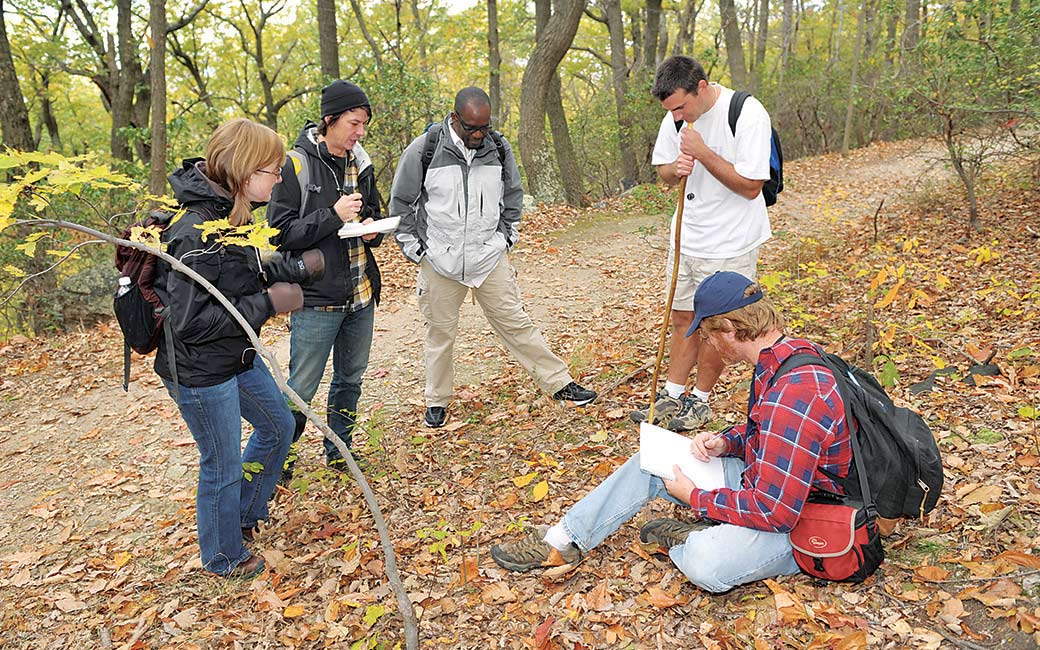Environmental Science Concentration
The environmental science concentration prepares students to become environmental problem-solvers in a world confronting ever-increasing challenges relating to climate change, population expansion, and depletion of natural resources.

Environmental scientists need to be familiar with natural systems and how they respond to disturbance. They also need to understand the interactions and potential for conflict between social and natural systems. The program prepares students with specific training in your selected specialization and interdisciplinary study. Faculty represent a broad range of expertise, including biology, chemistry, geology, ecology, mathematics, geography, philosophy, political science, economics and environmental health.
You will also benefit from the integration of the various disciplines and perspectives during the senior seminar, research or internship opportunity that all students complete toward the end of their program of study.
Your Degree Options
Students in the environmental science concentration select from the following tracks: environmental biology, environmental chemistry, environmental geology, or environmental science. You can view degree requirements and course descriptions for these tracks in the Undergraduate Catalog.
Environmental Biology Track
The environmental biology track is designed for students with a primary interest in the ecological components of natural systems. Graduates go on to careers in environmental consulting, environmental monitoring, restoration ecology, conservation biology, environmental compliance, watershed protection, ecotoxicology and similar fields. Others continue their studies in graduate programs.
Environmental Chemistry Track
The environmental chemistry track is designed for students interested in the fate and transport of various chemicals in the environment. Graduates go on to careers in environmental consulting, environmental monitoring, water quality monitoring, wetland restoration studies, environmental compliance, watershed protection and similar fields. Others continue their studies in graduate programs.
Environmental Geology Track
The environmental geology track is designed for students interested in the substrates, water, soil and minerals that control various processes of the natural world. Graduates go on to careers in environmental consulting, hydrological modeling, environmental compliance, watershed protection, and with environmental monitoring and protection agencies. Others continue their studies in graduate programs.
With only one additional course (GEOL 123 Historical Geology), students in this track can also earn a minor in geology.
Environmental Science Track
The environmental science track provides a broad exposure to environmental biology, chemistry and geology. It is a good choice if you do not wish to or are not ready to focus your studies in one of these three areas. Graduates go on to careers in environmental consulting, environmental monitoring, environmental compliance and similar fields. Others continue on to graduate studies.
Accelerated BS-to-MS Program
Qualifying students can count up to 9 units toward both a BS and an MS degree in Environmental Science. For more details, visit the Accelerated Programs website.
For questions about the Accelerated BS-to-MS in Environmental Science, contact Dr. John Sivey, Graduate Program Director.